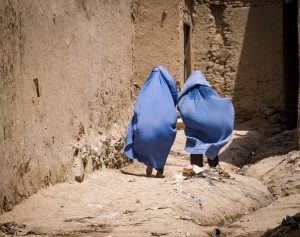In a move that has been described as groundbreaking, Canada, Australia, Germany, and the Netherlands have expressed their intent to take the Taliban to the International Court of Justice (ICJ). Accusing the Taliban of gender discrimination, they aim to file a charge to ensure the compliance of Afghanistan’s Islamic Emirate with the Convention on the Elimination of all Forms of Discrimination against Women (CEDAW), which was adopted by the General Assembly in 1979 and brought into force in 1981. Afghanistan’s civilian regime ratified the convention in 2003.
In normal circumstances, the convention is binding upon a country, regardless of leadership changes. However, normalcy has been a strange concept in Afghanistan since the Taliban takeover.
The Taliban have repudiated every policy of the previous administration, unveiling an oppressive environment with a series of harsh edicts that severely limit the rights of girls and women. A few days before the foreign ministers of Canada, Australia, Germany, and the Netherlands announced their intent – to open negotiations with the Taliban on the issue and approach the ICJ, if they do not succeed – the Taliban banned women from speaking in public.
CEDAW’s Article 29 is clear on the roadmap: Any dispute between states parties concerning the interpretation or application of CEDAW that is not settled by negotiation shall, at their request, be submitted to arbitration. If, within six months from the date of the request for arbitration, the parties are unable to agree on the organization of the arbitration, they may refer the dispute to the ICJ.
The experience of the past three years suggests that the Taliban will not negotiate on a matter that the group considers internal, leaving no other course of action than to seek the ICJ’s attention, should the energy and commitment of these four countries remain unwavering. The Taliban’s intransigence would then bring about the next roadblock.
What if the Taliban do not respond within the usual six months that it is allowed to under the ICJ’s provision or choose to merely respond with the mantra that this issue is an internal matter of Afghanistan? The ICJ can still propose provisional measures but without enforceability, it will be consigned to the pages of history as an important but futile attempt. Signatories to the ICJ are expected to abide by its rulings. But then, the Islamic Emirate does not consider itself a continuation of the earlier Afghan regime and will reject any move to make it abide by the treaties signed by the previous civilian regime.
These legalities apart, there are three important truisms to consider.
First, the Taliban government is a regressive regime, with its distinct vision of an Islamic society, in which women belong, as its policies and diktats so far demonstrate, to the lowest strata. The Taliban do not consider women capable of contributing to society and have barred them from public spaces. These policies have flowed uninterrupted from the Kandahar-based power center consisting of the supreme leader Mullah Hibatullah Akhunzada and his advisers, who hold enormous sway over the Taliban writ large.
Second, there are factions within the Taliban, including the Haqqanis, who may disagree with Akhunzada’s worldview, but they have chosen unity over contretemps. More importantly, it’s difficult to discern if their occasional expression of difference makes them completely at variance from Akhunzada or if those are only minor deviations while the core remains unflinchingly deleterious. There is no guarantee that the Taliban’s policies will change if Akhunzada ceases to be the leader.
Third, the world, barring a slowly expanding list of regional countries that engage the Taliban and run their embassies in Afghanistan, is yet to recognize the Islamic Emirate. At the same time, not a single nation has expressly stated that recognition of the Islamic Emirate is dependent upon their respecting human and women’s rights and reversing all the measures they have taken to curb and suppress the rights of girls, women and minorities.
Not that the Taliban would be expected to accede to such diktats, but such direct communication may create a low-hanging fruit – an incentive to change course – for the Taliban to grab. Except for the international indignation that follows the announcement of a fresh diktat by the Taliban’s Ministry for the Propagation of Virtue and the Prevention of Vice, there is no serious conversation between the international community and the Islamic Emirate that could bring about a change in Taliban’s behavior.
The overall objectives of the latest initiative are twofold: To keep international attention on the issue and to deter countries from normalizing their relations with the Taliban. Moreover, it’s a message to women – inside and outside Afghanistan – that the world has not forgotten them. Even in the face of its dismal prospect of success, it is important to keep pressure on the Taliban regime.
It is important to emphasize that while the Taliban are unlikely to make major changes regarding women’s rights, incremental progress may be possible through dialogue, engagement, and leveraging international influence. In the past three years, the Islamic Emirate has provided enough examples of its obduracy even while displaying its hunger for international recognition and assistance. Its concerns about isolation have been somewhat alleviated by engagement from regional actors. However, any recognition of the Taliban without adhering to CEDAW could encourage further violations by a regime that lacks both internal and international legitimacy and accountability.

































